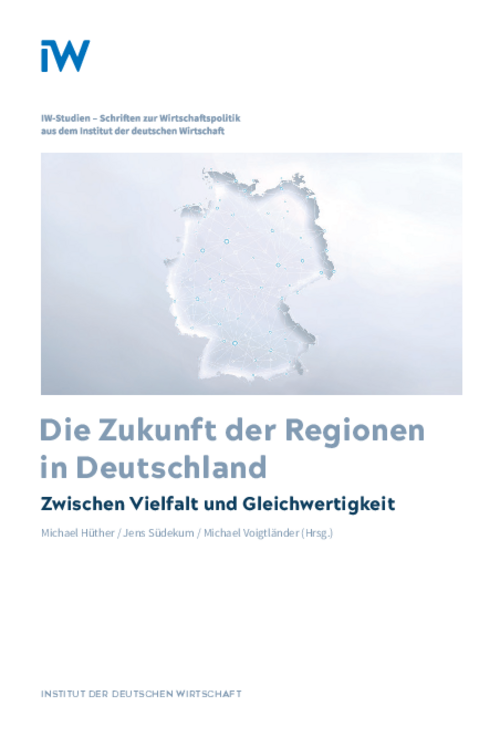Germany is a country with a large number of prospering regions and economic centres. Yet not everywhere are either the current situation or the outlook for the future positive. There are cities and regions where development faces considerable hurdles.

The future of Germany’s regions: Between diversity and equality

Germany is a country with a large number of prospering regions and economic centres. Yet not everywhere are either the current situation or the outlook for the future positive. There are cities and regions where development faces considerable hurdles.
While many of the country’s cities are enjoying ongoing growth, there is a trend, particularly among the young and the well-educated, away from rural and structurally weak regions. And while the booming economy of recent years has brought a significant drop in unemploy ment in many places, in other respects there have been few improvements of note. The task of regional policy is to identify and eliminate such disparities. But what are realistic objectives for regional policy? Which regions deserve particular support – and with what instruments? The present IW Study tackles these and other fundamental questions.
In the first thematic block, the authors discuss the theoretical and normative founda tions of regional policy. Here it can be seen that it is precisely the motors of modernisa tion – tertiarisation, digitisation and the transition to a knowledge society – that are driving the regions apart. From a normative point of view, consensus can be reached on minimum standards for the nationwide provision of services and on government stimu lation of economic activity in structurally weak regions. From a constitutional point of view, there is a broad basis for government intervention, since Germany’s Basic Law grants policymakers considerable leeway in this area – not least, and indeed especially, where the establishment of “equal living conditions” is concerned.
The second block of the study examines the development of Germany’s regions empiri cally. Depending on the perspective chosen – be it the economy, demographics or in frastructure – Germany’s regions are seen to have different strengths and weaknesses. The structurally weak parts of eastern, western and northern Germany, some of which have long been recipients of regional aid, include both urban and rural areas. The study’s first major conclusion is thus that regional policy has not yet achieved the goals it has set itself, neither at the German nor at the European level.
The third block treats individual fields of policy-making of relevance for regional policy and derives options for action. A central issue for regional development is fiscal policy, as their excessive debt burden deprives many structurally weak municipalities of the necessary scope for action. In addition to financial assistance, strategies for avoiding vacant housing, extending the rail network and expanding broadband internet access, and the building of strength in innovation also offer growth opportunities for those re gions that are struggling to keep up with the rest of the country. The study concludes with a summary of the key results and an outlook for future regional policy in Germany.

The future of Germany’s regions: Between diversity and equality

Christian A. Oberst / Hanno Kempermann / Michael Hüther: Räumliche Entwicklung in Brandenburg – Trends und politische Optionen
Sonderauswertung zur IW Regionalstudie im Auftrag der Vereinigung der Unternehmensverbände in Berlin und Brandenburg e.V. (UVB)